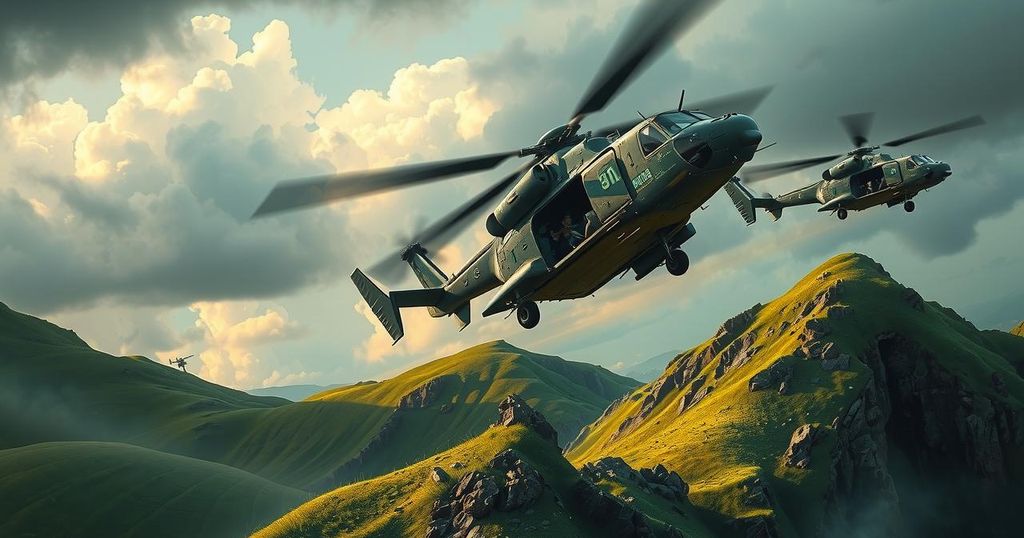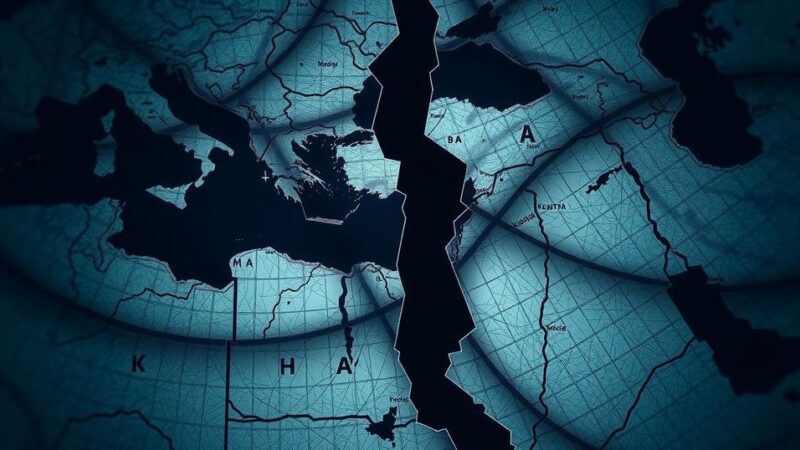Captain Serhiy Muzyka’s helicopter rescue mission in South Sudan turned chaotic when gunfire erupted, resulting in injuries and the loss of a crew member. The situation exemplified the ongoing conflict in South Sudan, highlighting the risks associated with humanitarian operations. Despite challenges, Muzyka successfully evaded danger and completed the mission, leading to his team’s commendation for bravery.
Captain Serhiy Muzyka, a seasoned helicopter pilot from Ukraine, recently undertook a harrowing rescue mission in South Sudan. This operation, backed by the United Nations, aimed to evacuate soldiers from a military base in Nasir but quickly devolved into chaos. Muzyka, who has had a distinguished 43-year career, faced gunfire during this dangerous extraction, resulting in injury and the tragic loss of a crew member, bringing to light the precarious security situation in South Sudan.
Muzyka’s military career spans several decades, including significant service during the Soviet era and conflicts in Afghanistan. His mission in South Sudan became his most memorable experience when he and his team had to evacuate wounded soldiers amidst a violent shoot-out. Despite suffering a gunshot wound to his arm, Muzyka managed to pilot the helicopter to safety under distressing conditions, demonstrating remarkable resilience.
The incident occurred when the Ukrainian Helicopters team returned to Nasir to extract six injured soldiers, including a general, after successfully completing a previous mission. Tensions in the region have escalated due to distrust between ethnic factions, further complicated by military maneuverings from both sides. The rapid deterioration of security culminated in the attack that Muzyka and his crew faced while on the ground, resulting in chaotic circumstances and difficult decisions.
Unaware of the imminent danger, Muzyka realized there was a problem only when he noticed blood on his arm. Then, as gunfire erupted, he swiftly made the decision to take off, witnessing injuries to his crew and UN personnel as he piloted the helicopter. The situation worsened when the aircraft sustained damage during the attack, requiring Muzyka to navigate at low altitudes to reach safety.
The flight was fraught with challenges, including critical damage to vital systems within the helicopter. Muzyka’s experience and quick thinking allowed him to adjust his flight strategy, seeking landing options while managing his injury. He and his team endured additional difficulties landing at Malakal airport but successfully reached the destination despite facing numerous gunshot holes in the aircraft’s body.
Regrettably, the crew could not save flight attendant Sergii Prykhodko, who succumbed to his injuries. Upon arrival, the crew received medical assistance while grappling with the loss. The incident profoundly affected them and raised concerns for their families in Ukraine amidst ongoing conflicts. They were later recognized for their bravery by receiving a UN medal of honour, with the head of the UN mission labeling the attack potentially as a war crime.
Captain Muzyka has since returned to Ukraine for recovery and family time, expressing a desire for global peace and an affirming attachment to aviation. He reflects on the intense experience as surreal, noting the rarity of such attacks in his extensive career. The ongoing instability in South Sudan serves as a stark reminder of the fragile peace efforts, with the region remaining on edge as tensions persist.
In conclusion, Captain Serhiy Muzyka’s recent experience in South Sudan underscores the severe challenges and risks faced by international humanitarian missions in conflict zones. Despite a successful evacuation under duress, the mission highlights the ongoing instability in South Sudan and the urgent need for sustainable peace. The tragic loss of life reflects the dire circumstances, leaving an indelible mark on the surviving crew members. Muzyka’s hope for future peace illustrates the sentiments held by many working in such precarious environments, wishing for resolution and stability in conflict regions.
Original Source: www.bbc.com






